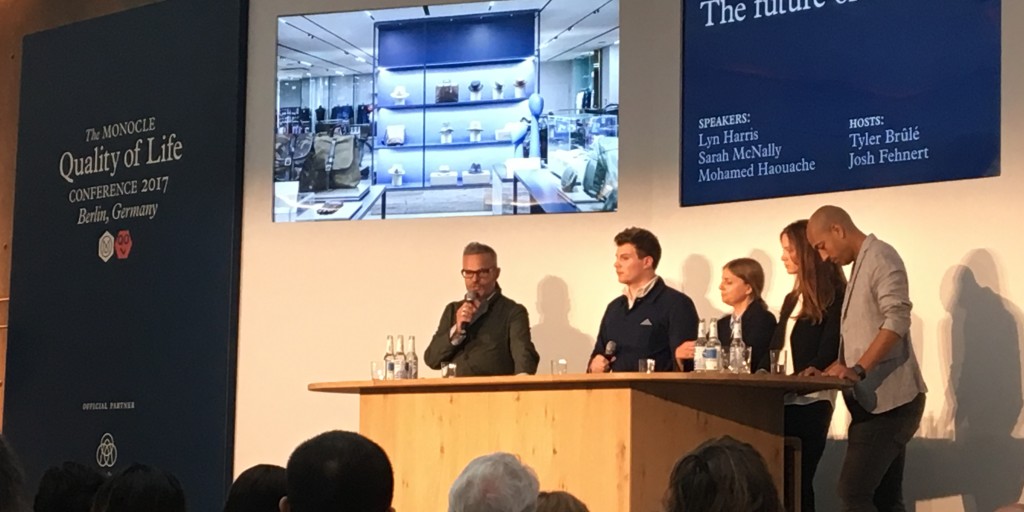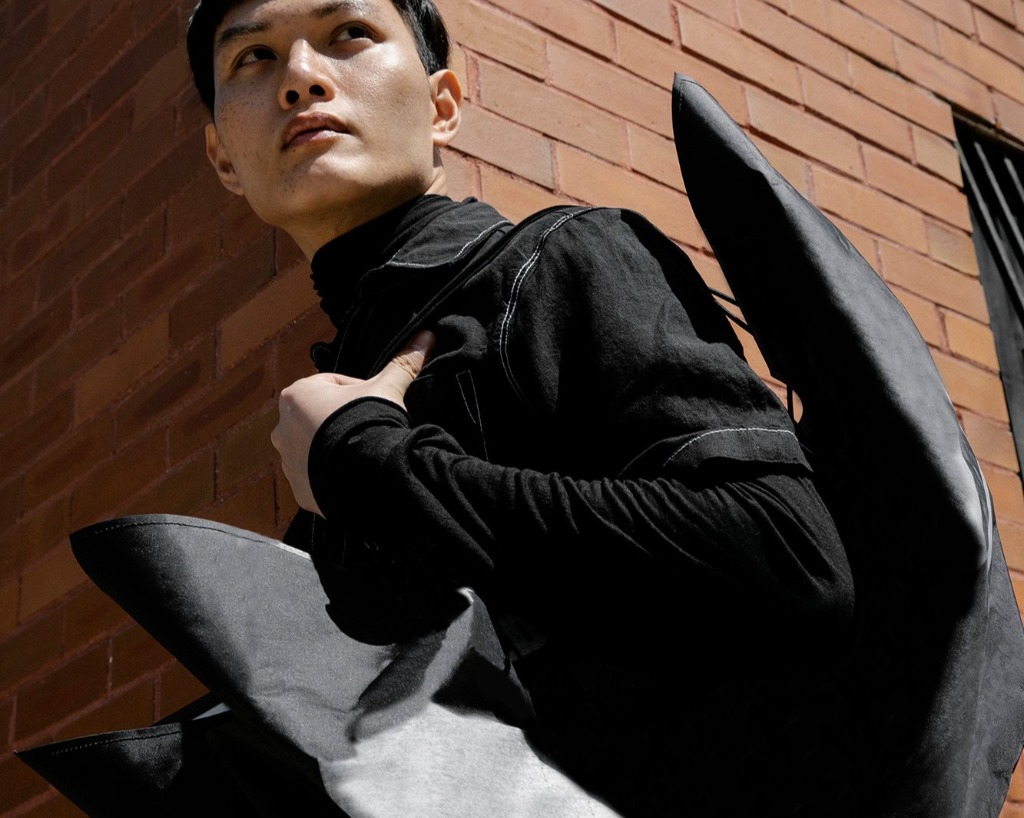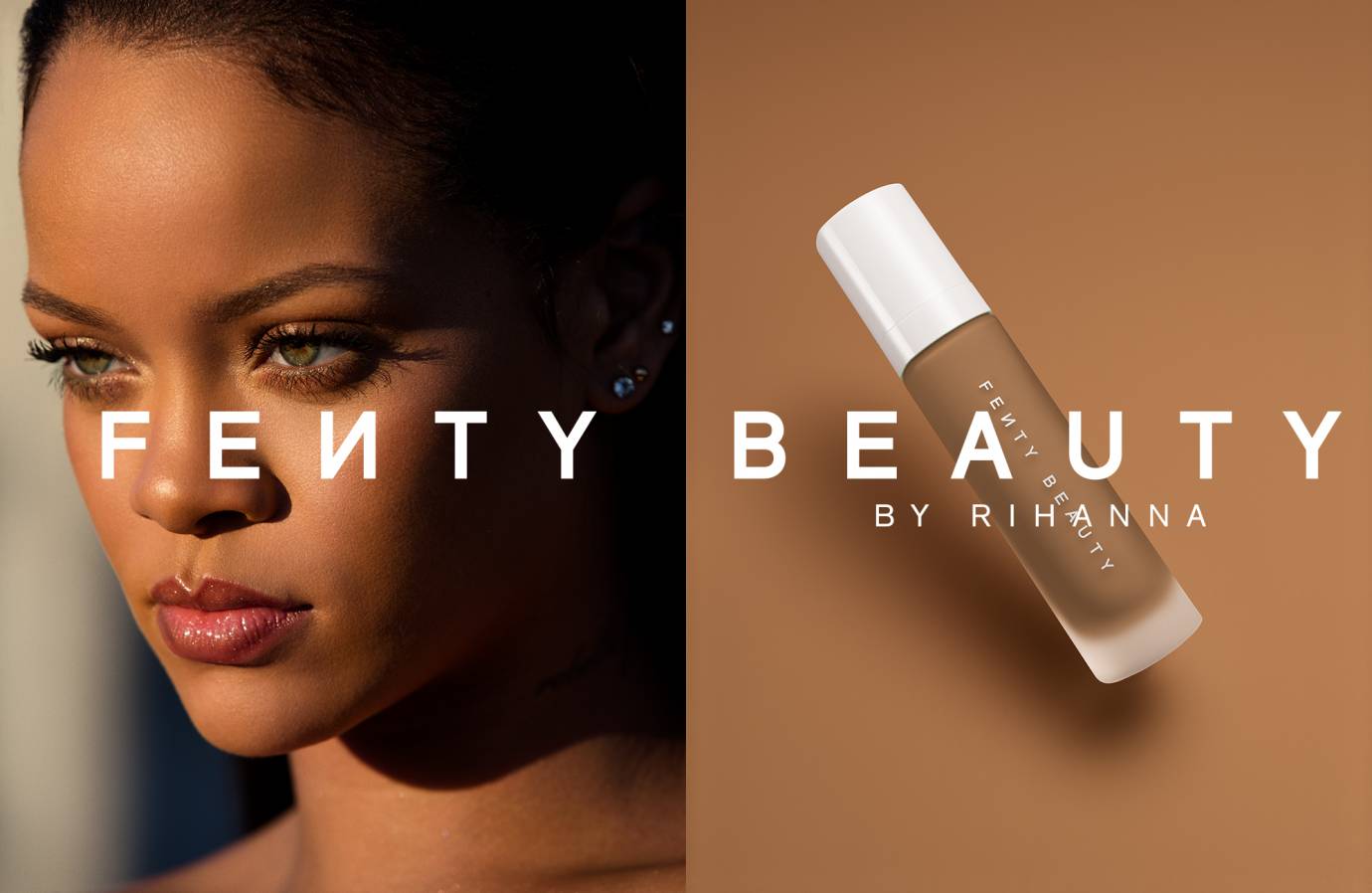‘The Future of Retail’: Highlights from the best panel at last month’s Monocle conference in Berlin.
BERLIN — As with anything Monocle you should expect the following: near perfect execution, slick presentation, and sharp wit, all bound together by an optimistic, global perspective. So it was at last month’s third annual Monocle Quality of Life Conference, the publisher’s flagship event, held this year in Berlin.
Several key panels were noteworthy, but it was the penultimate one, ‘The Future of Retail’, comprised of Mohamed Haouache of Storefront, a pop-up space platform, Lyn Harris of Perfumer H, a London-based perfumer, and Sarah McNally of New York bookstore McNally Jackson, that most attendees would agree served as the best one of the day.
Monocle Chief Tyler Brûlé and editor Josh Fehnert, serving as moderators, ensured the discussion remained a lively, opinionated one with strong back-and-forth, and (amicable) disagreement — all key ingredients for a memorable panel. Though engaged questions from the audience kept coming, a time limit on questions meant that several went unanswered, keeping thoughts on the exchange lingering well into dinner later that evening.
Below, our panel highlights:
Brûlé and Fehnert set the tone. Tyler Brûlé got things started in a strong direction: “Has this just become all too difficult — trying to deliver clothes off the runway, within 12 hours within the same city — the complexity of sending your stylist or salespeople across the country to redo someone’s wardrobe, in the hope that you might sell them a thousand two thousand dollars more than you did the season before?”
And Josh Fehnert probed further: “Are developers waking up to the fact that physical retail spaces — they don’t need to be the big generalists or big brand name stores — but are developers waking up to the fact that it’s good and interesting, that there’s some civic value to having interesting shops on our high streets?”
The bold prediction that sparked the biggest debate, arrived from Storefront’s Mohamed Haouache. His big bet is that retail will eventually be free, and that landlords will start becoming open to the idea of revenue sharing with tenants. We’ve quoted him here:
“My crystal ball is telling me that retail is not going to improve. The vacancy rate is going to stay high. When I speak to commercial brokers, they believe that we are still in one of these classical cycles of retail struggling before rebounding.
This is not my belief. I truly believe that right now, given the fact that retailers tend to use pop-up stores as a flexible tool, they’re not going to move into long term commitments. When I speak to landlords, they’re realizing that, as of now, the long term liability of investing into a retail or commercial space is no longer going to be matched with long term revenues. They have to find a new business model, and this business model is to move into high frequency business.
My investors think that I’m a little bit crazy, because I really believe that retail is going to be free. Given the number of retail space available in New York, I believe that my company is going to be able to convince landlords that they should give their space for free and move into a business model where they will make money when a brand is making money through a revenue-sharing model. This is what I’m trying to achieve. I’m not sure I have the right timing, but I’m trying to push for this vision.”
Perfumer H’s Lyn Harris shot back in disagreement. “Yes, but we love retail. Retail is still alive. Shops are disappearing, but they’re disappearing because they’re not doing them well. We all need shops in our lives. We love to touch and feel and experience things. That’s how we connect. It’s about building communities around your brand and around what you’re doing. This is what the big boys aren’t doing. They’ve got too many stores. How can you possibly do this on a large scale?”
But she did admit that the revenue-sharing model sounded promising. One question from an audience member, skeptical about Mohamed’s idea of free retail revenue sharing between brands and landlords, asked Sarah and Lyn specifically if they’d be open to paying ten percent of sales to landlords if they received the space for free. Both agreed that they would.
Other impressions. Harris also appeared to be torn on the pop-up model, or at least the impermanence of it. “You’re there one day, and then poof you’re gone. I think there needs to be some permanence.” There’s logic to that argument, to be sure.
Not to be left out, Sarah McNally of McNally Jackson was particularly articulate on where bookstores fit in today’s new retail conversation, particularly since in the US, smart independent bookstores are all the rage with developers currently. She offered this insight:
“In the next year, I’m going to be opening two other large bookstores both at dramatically below rent because developers look at the bookstore as an amenity. I’m opening one in South Street Seaport [in NYC], and I said to [developer] Howard Hughes, ‘Why are you offering me this huge, beautiful space for such little money?’ and he said, ‘Because we want to sell condos at $10,000 a square foot, and we can’t do that if we don’t have retail like you.’”






